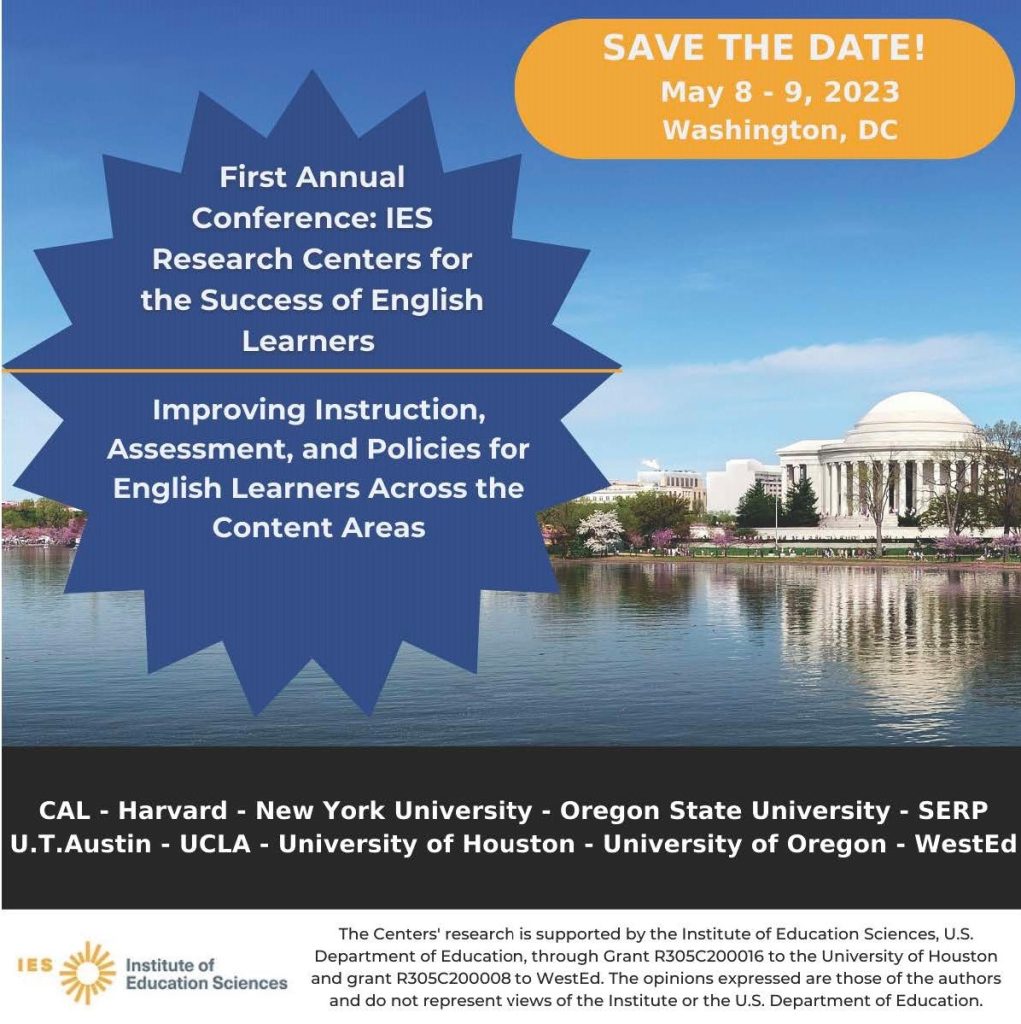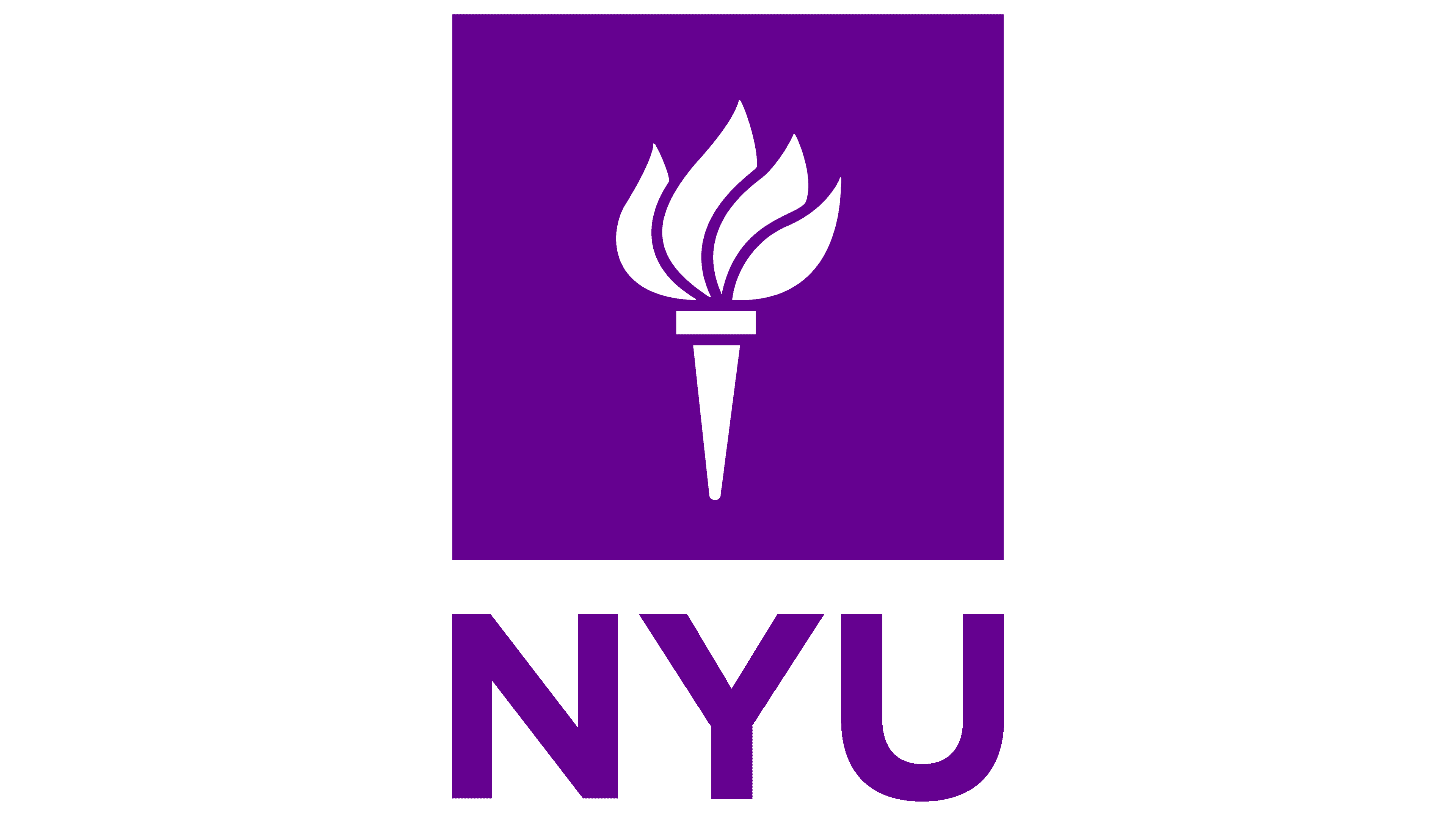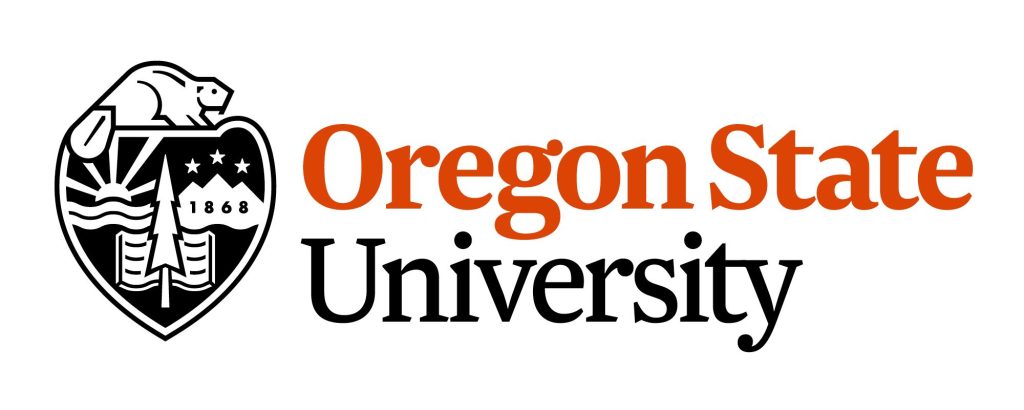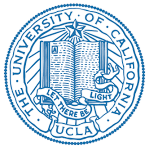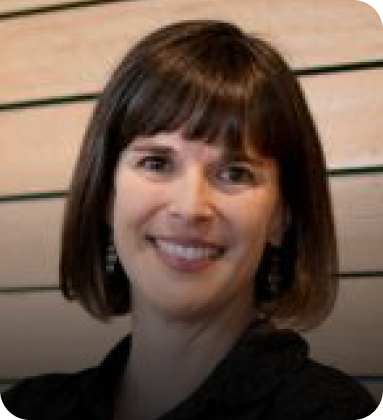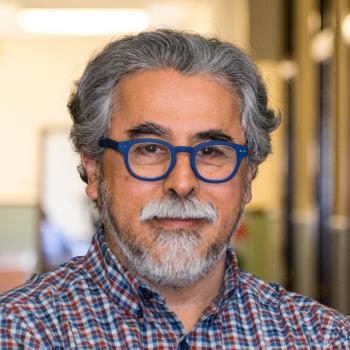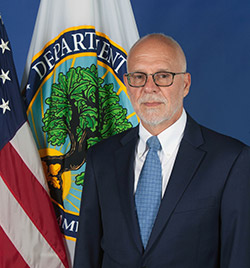May. 8&9, 2023 - Washington, D.C.
Inaugural Conference
Improving Instruction, assessment,
and policies for Secondary English Learners
across the content areas
National R&D Centers to Improve Education for Secondary English Learner
Who should attend:
English learner educators – Content area teachers – teacher educators
district and state English Learner program administrators - policymakers - researchers
May. 8&9, 2023 - Washington D.C.
First Annual
Conference
IES Research Centers for the Success of English Learners
Improving Instruction, Assessment, and Policies for English Learners Across the Content Areas.
May, 8&9
Don’t miss this opportunity to:
- Learn ways in which teacher education, curriculum, instruction, assessment, course taking, and policies can be dramatically improved so that secondary English Learners succeed in all content areas
- Hear directly from leading researchers and experts in the field
- Network across research, policy and instruction to share best practices
- Make a difference in the learning and the lives of children who need support to simultaneously learn subject matter content and practices, and the English necessary to communicate them.
We expect that the joint conference will nurture critically needed awareness of research-based findings, as well as the tools and processes available to ensure that English Learners are offered quality opportunities to learn and realize their potential.
Meet Our Speakers
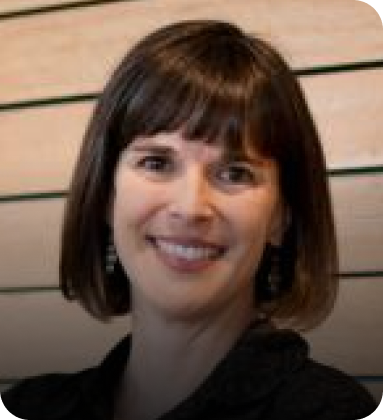
Amanda Kibler
- Phone:+1 (859) 254-6589
- Email:info@example.com
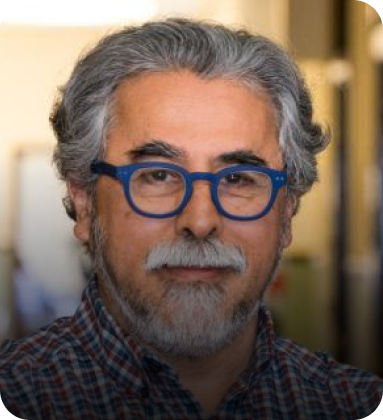
Guillermo Solano-Flores
- Phone:+1 (859) 254-6589
- Email:info@example.com
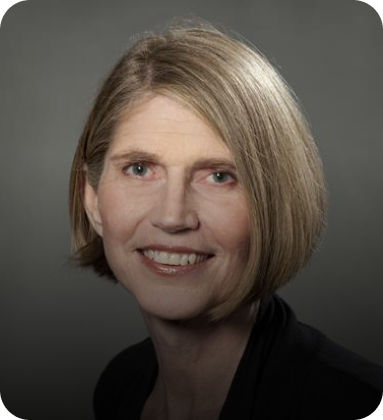
Jennifer O'Day
- Phone:+1 (859) 254-6589
- Email:info@example.com

Kenji Hakuta
- Phone:+1 (859) 254-6589
- Email:info@example.com

Mark Schneider
- Phone:+1 (859) 254-6589
- Email:info@example.com
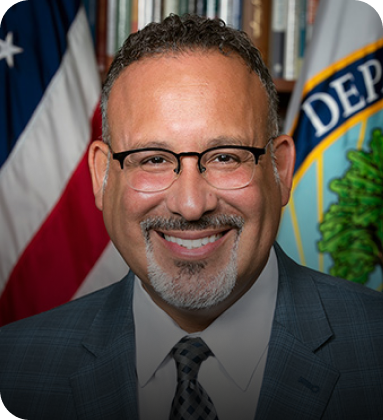
Miguel A. Cardona
- Phone:+1 (859) 254-6589
- Email:info@example.com






The Centers’ research is supported by the Institute of Education Sciences, U.S. Department of Education, through Grant R305C200016 to the University of Houston and grant R305C200008 to WestEd. The opinions expressed are those of the authors and do not represent views of the Institute or the U.S. Department of Education.
Improving Instruction, Assessment, and Policies for English Learners Across the Content Areas.
8 & 9 of May, 2023 – Washington D.C.
MARK YOUR CALENDAR!
More information Soon!
Venue Address
University Student Center
The George Washington University, 3rd floor
Washington, D.C. 20052
Speakers
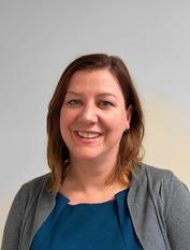
Lorem ipsum dolor sit amet, consectetur adipiscing elit. Ut elit tellus, luctus nec ullamcorper mattis, pulvinar dapibus leo. Lorem ipsum dolor sit amet, consectetur adipiscing elit. Ut elit tellus, luctus nec ullamcorper mattis, pulvinar dapibus leo.
Lorem ipsum dolor sit amet, consectetur adipiscing elit. Ut elit tellus, luctus nec ullamcorper mattis, pulvinar dapibus leo.
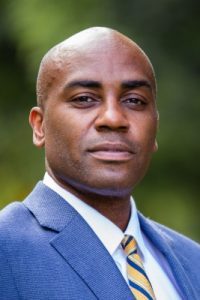
Lorem ipsum dolor sit amet, consectetur adipiscing elit. Ut elit tellus, luctus nec ullamcorper mattis, pulvinar dapibus leo. Lorem ipsum dolor sit amet, consectetur adipiscing elit. Ut elit tellus, luctus nec ullamcorper mattis, pulvinar dapibus leo.
Lorem ipsum dolor sit amet, consectetur adipiscing elit. Ut elit tellus, luctus nec ullamcorper mattis, pulvinar dapibus leo.





